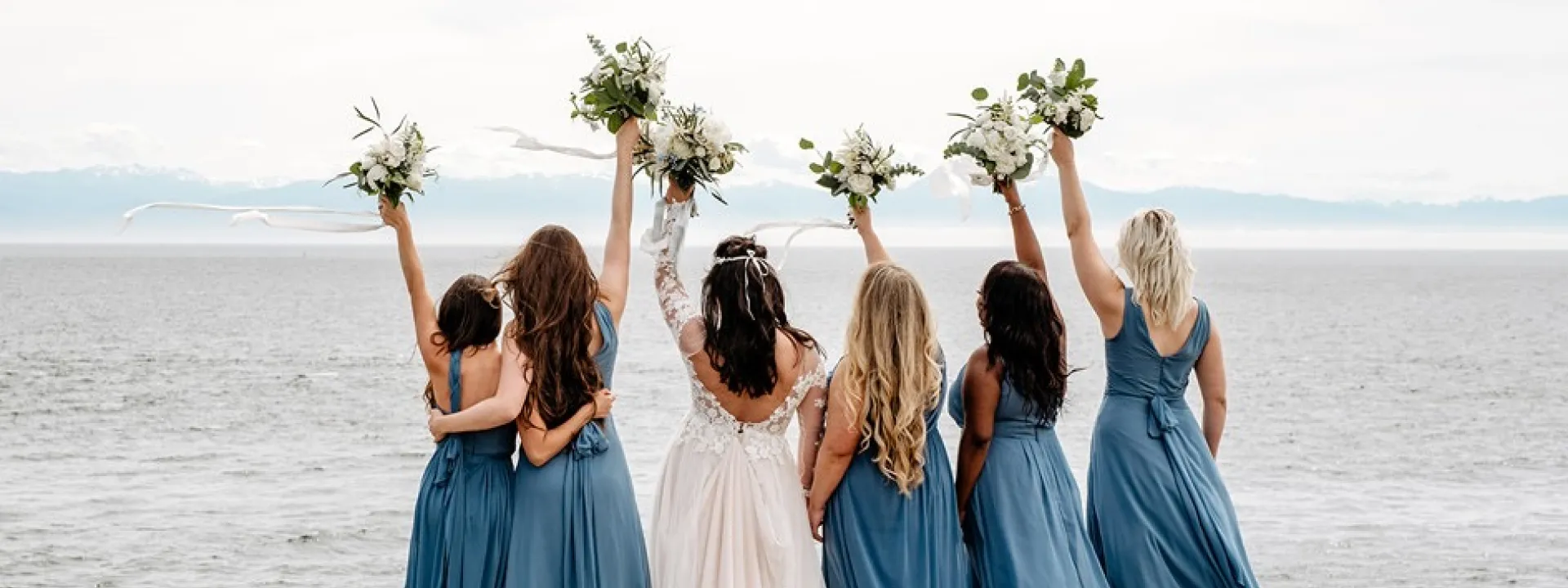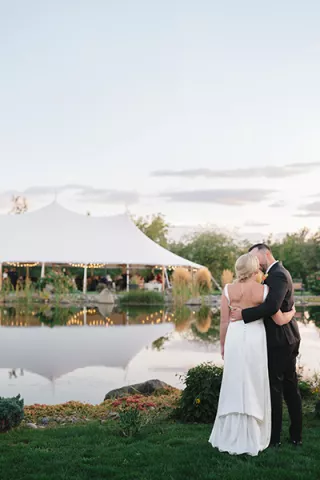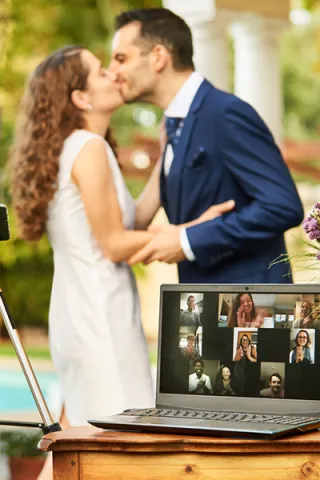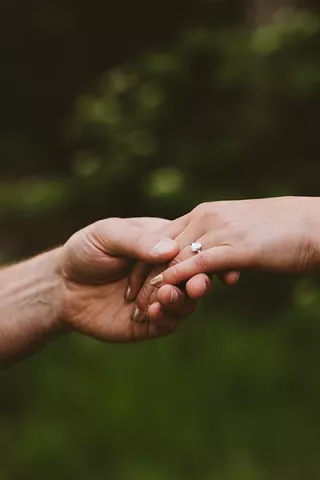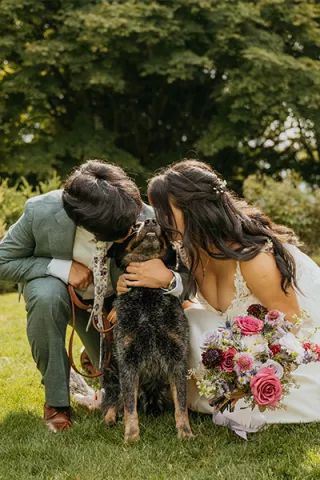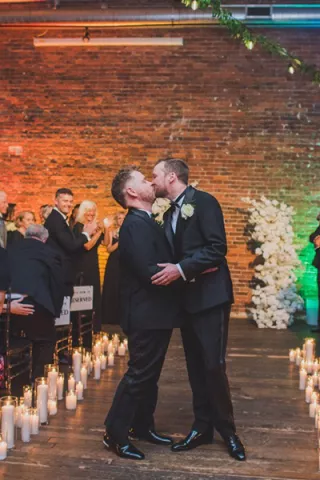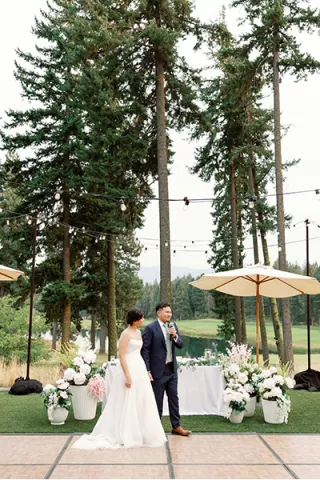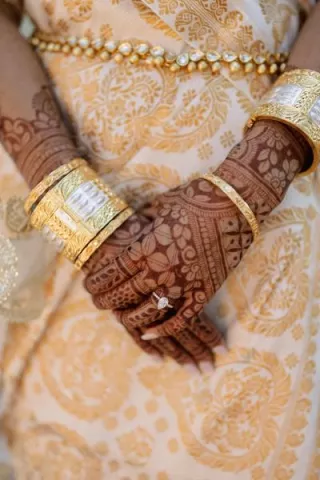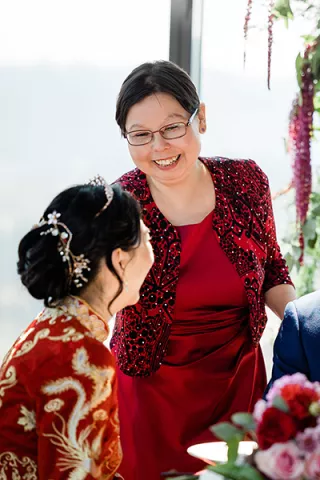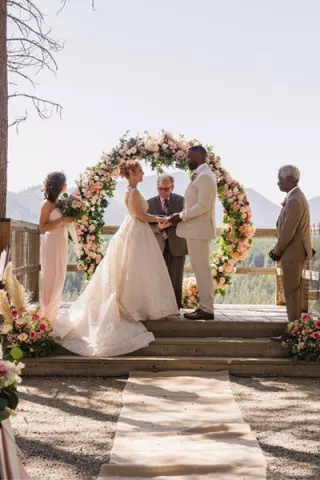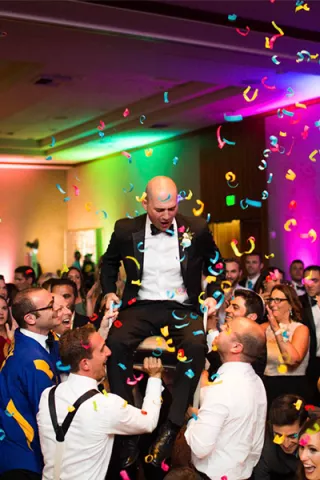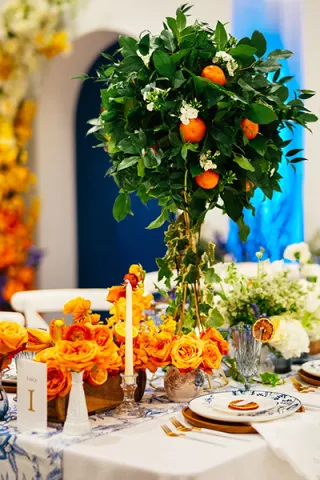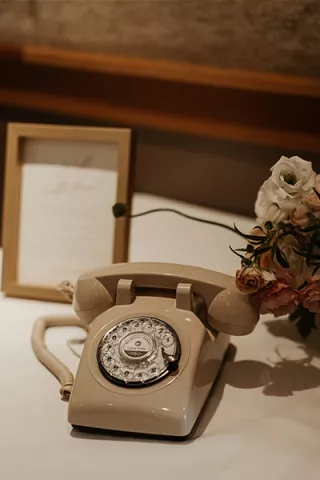Planning for your perfect wedding is hard, and even more so when trying to keep your ecological footprint in mind. Luckily for us, we know luxury does not need to come at the expense of environmentally ethical choices. Eco-friendliness is about making conscious decisions to minimize the overall impact on the planet. We asked four of Seattle’s wedding experts how we can help our local communities, and most of all, our beautiful Earth, stay green. From giving flowers a second life to minimizing waste, here are some surefire ways to have your dream green wedding.
ON THE BIG DAY
Tie the knot in the great outdoors at a venue that is LEED Gold certified and focused on celebrating nature through sustainable practices. “From al fresco dining to guided hikes, to lawn games on our meadows, the stunning and varied natural environment of the campus is a crucial part of the magic and wonder,” says Hanna Hupp, communications manager at IslandWood. The secret behind all of these amenities are the sustainable processes the venue utilizes, such as collecting roof rainwater, harvesting wood from the meadows for exterior siding and interior trim throughout campus, and using salvaged wood for wood flooring. More than 50% of the wood used throughout buildings is Forest Stewardship Council (FSC) certified. Buildings are left untreated to reduce the off-gassing of volatile organic compounds, and the campus is proud to include an “on-site wastewater treatment ‘living machine,’ reducing water consumption” in its low-flush toilets.
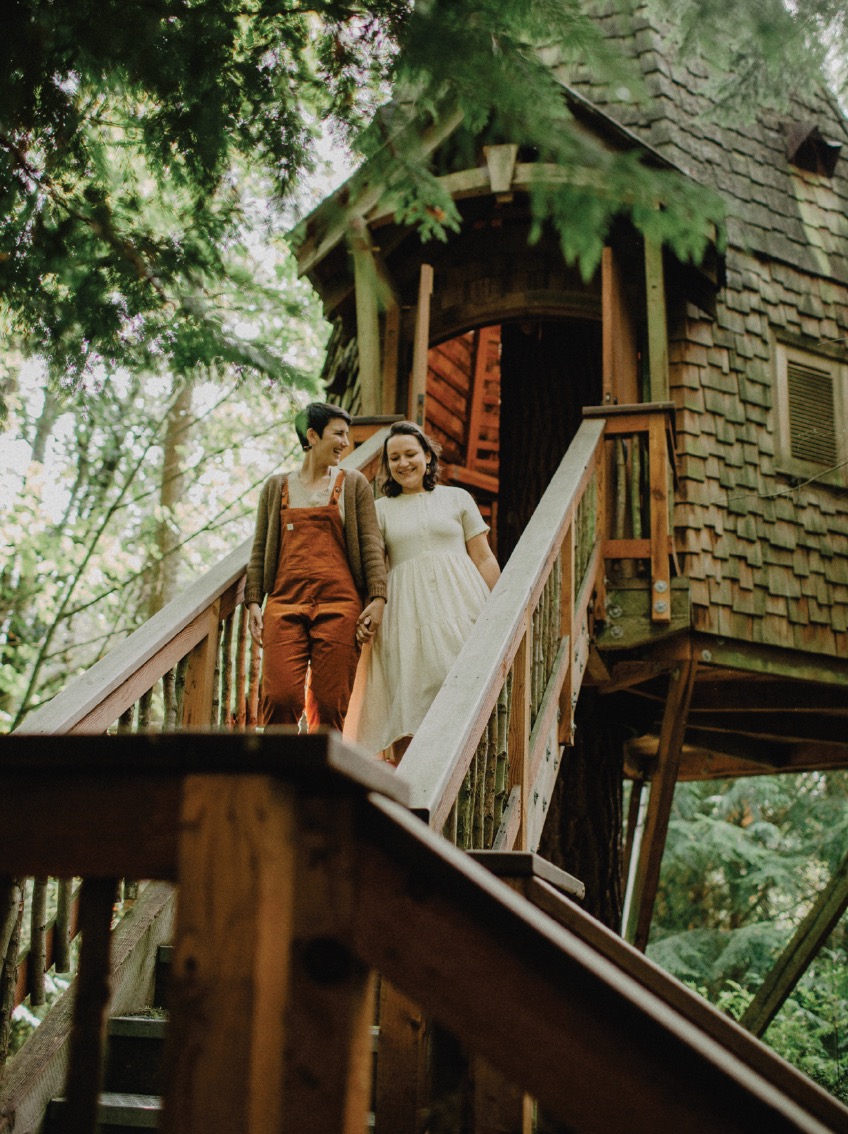
GROUP TRANSPORT
Kristina Embree of Harlow Events encourages all her clients to set up a carpool system for their big day. “This is a fun way to have all parties traveling together while keeping the excitement going, but it also lowers gas emissions. We want to be able to create a happy environment while creating a clean one!”
REDUCE, REUSE, RECYCLE
“Not only can they use reusable products, such as dishes and linens, but they can also have a trash, recycle and compost bin. Composting leftover food and florals from the wedding day can go a long way,” notes Embree. “We can all do our share so no trash is left to contribute to pollution or be consumed by animals on our beautiful Earth.” Embree also uses leftover flowers for the send-off toss—a perfect way to ensure all items have a role in the wedding day.
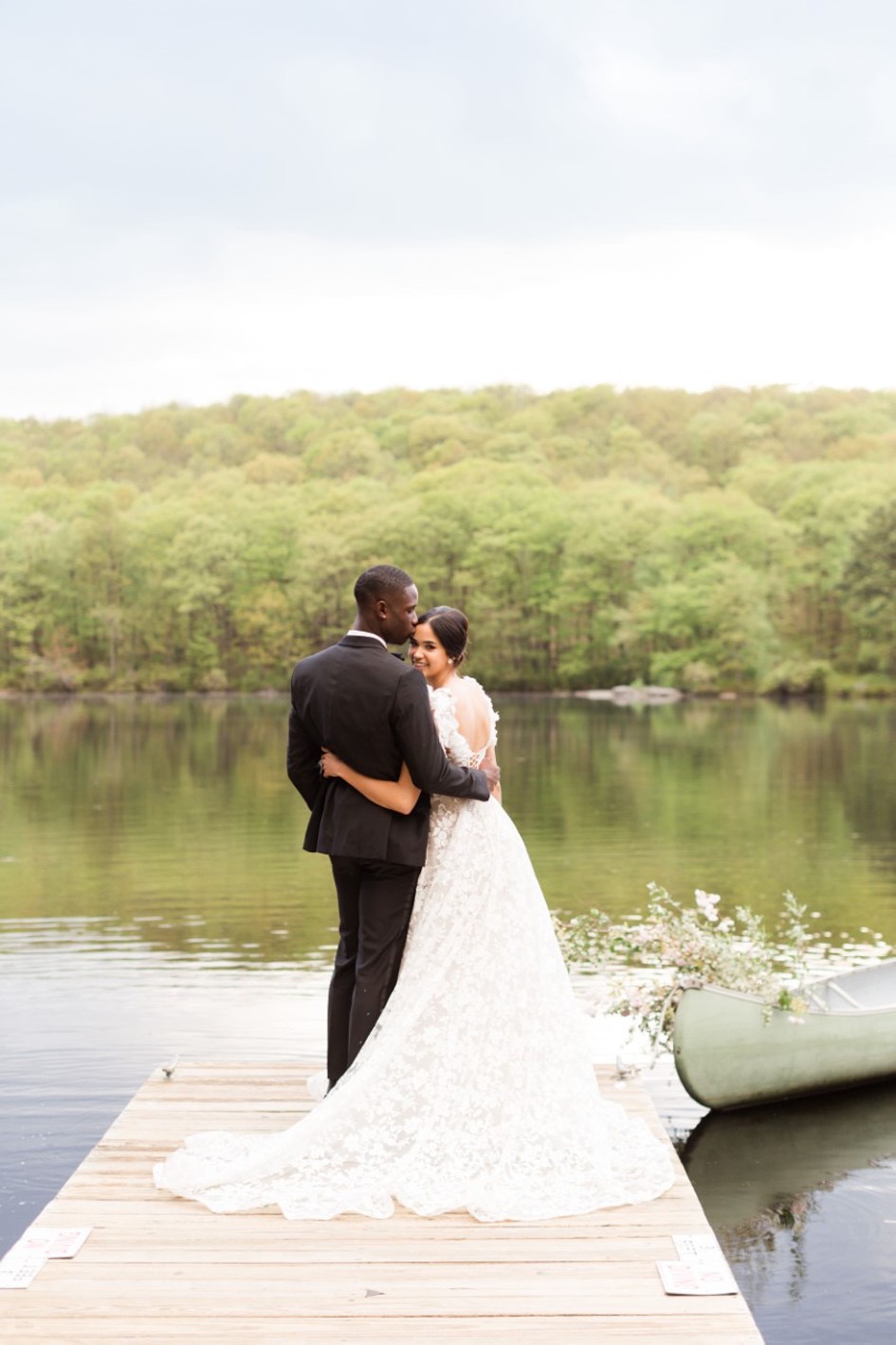
GO FOAM FREE
Camas Designs, a floral design company owned by Erin Shackelford, is located on San Juan Island, surrounded by the Salish Sea. The business has seen “firsthand the impact humans have on the ecosystem all around us,” says Shackelford. As a result, it has successfully eliminated the use of any floral foam this year. “We found alternatives to foam even on record-setting heat-wave days. There are so many amazing resources out there for florists that want to reduce their use of foam, and I encourage people speaking to florists to ask about their practices and how they reduce, reuse and recycle,” Shackelford remarks.
Opting for reusable materials is one of the methods that From the Ground Up Floral’s Gina Thresher says is a key to sustainability. For example, floral suppliers Agra Wool and Oasis have new wool- and fiber-based products that can be used in place of green foam. “Creating archways and installations using chicken wire and eco-wraps are also great ways to leave a small footprint.”
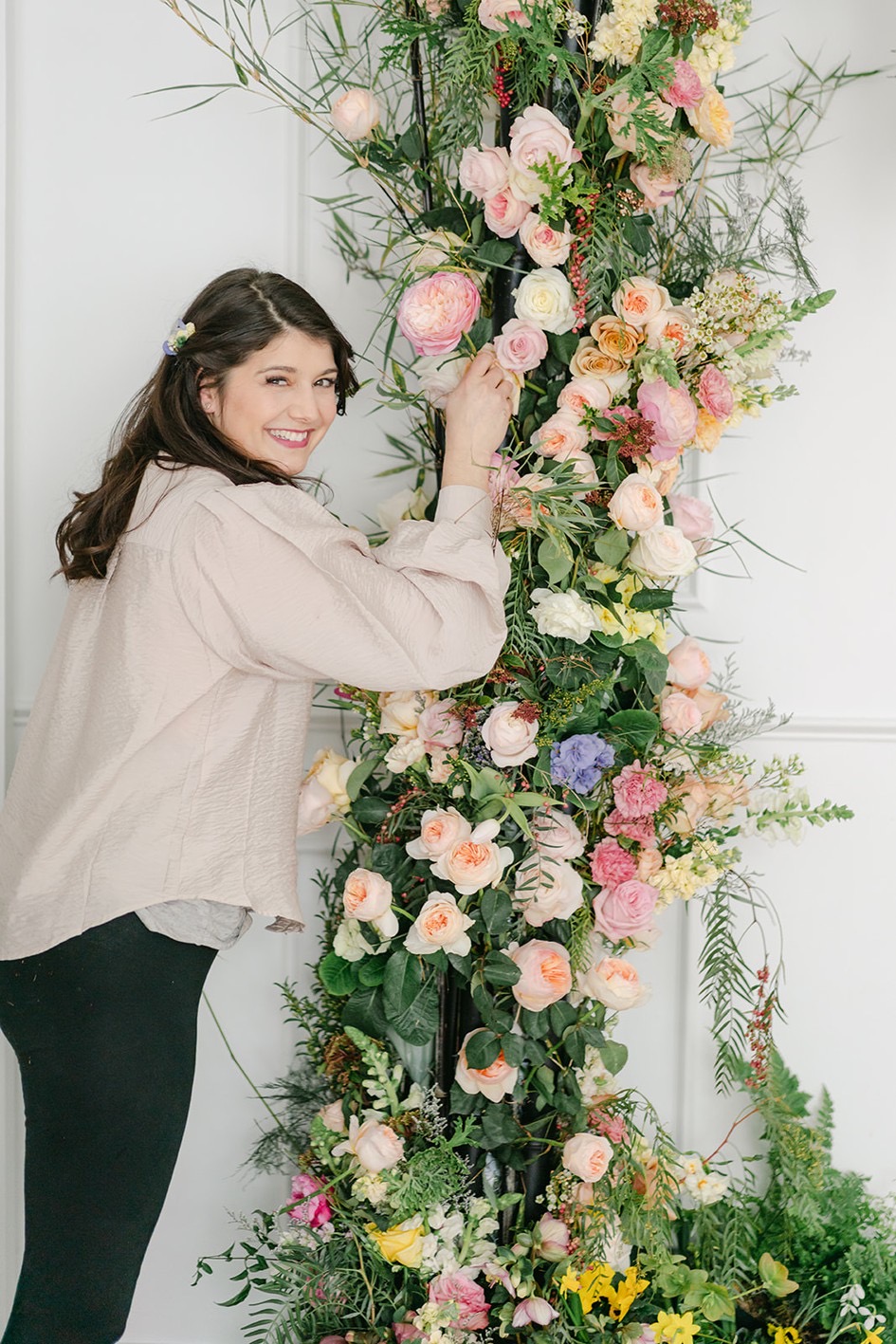
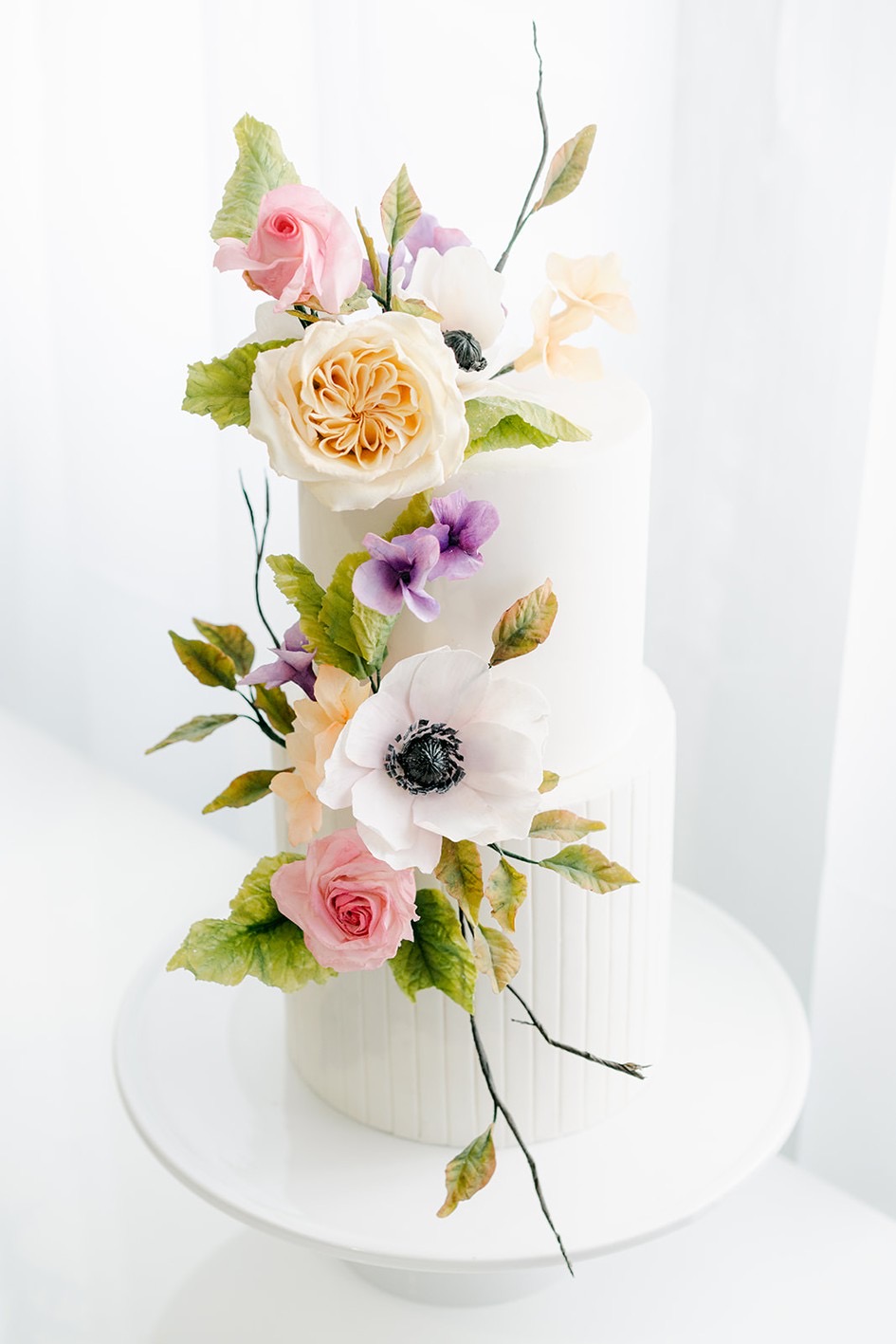
GO LOCAL
“Shopping the Seattle wholesale growers market and supporting farmers who grow beautiful products is by far a huge win in my book,” says Thresher. “It really feels good to get top-quality blooms and create a relationship with a client by providing items I grew, or just one step further, that a farmer locally grew.”
Look for catering companies that source local ingredients or grow their own. Says IslandWood’s Hupp, “Wherever possible, our kitchen team sources sustainable, local and seasonal ingredients for the menus we create. This often includes ingredients fresh from our on-campus garden, which is in turn nurtured by our robust composting system.”
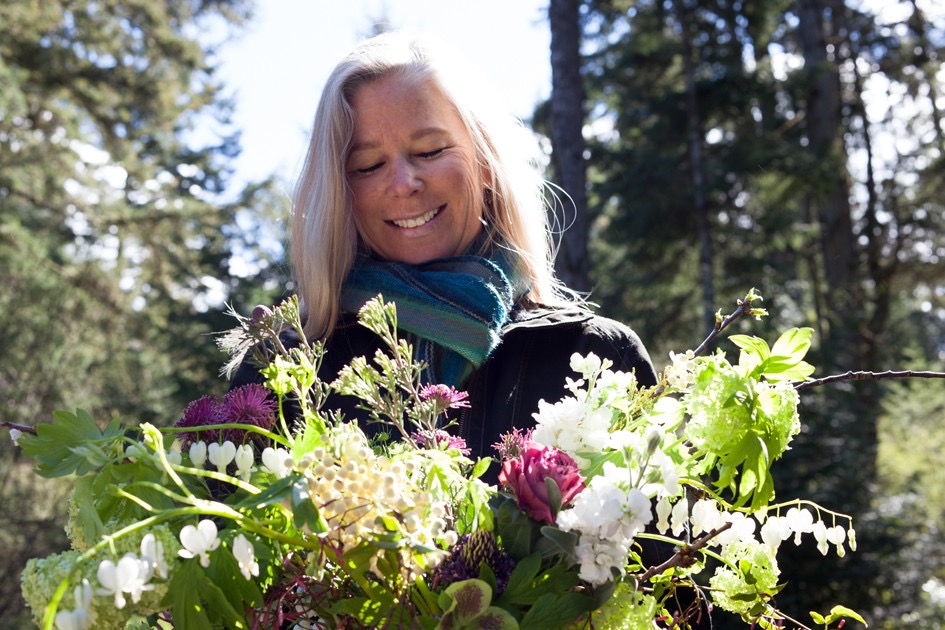
FOR THE COMMUNITY
Camas Designs encourages giving back to the community. After every event, its staff deconstructs the centerpieces to create new arrangements. “These bundles are distributed locally to our retirement homes, given as random gifts to our community, and continue to bring smiles to those who receive them,” explains Shackelford.
Venues also can play an impactful role in society. IslandWood, which is also an environmental education nonprofit, offers an education program that teaches students environmental stewardship, a venture that is made possible in part by the revenue generated from hosting weddings. “The revenue generated helps to provide scholarships and equitable access to IslandWood’s environmental education programs for students and teachers throughout the region,” says Hupp.
